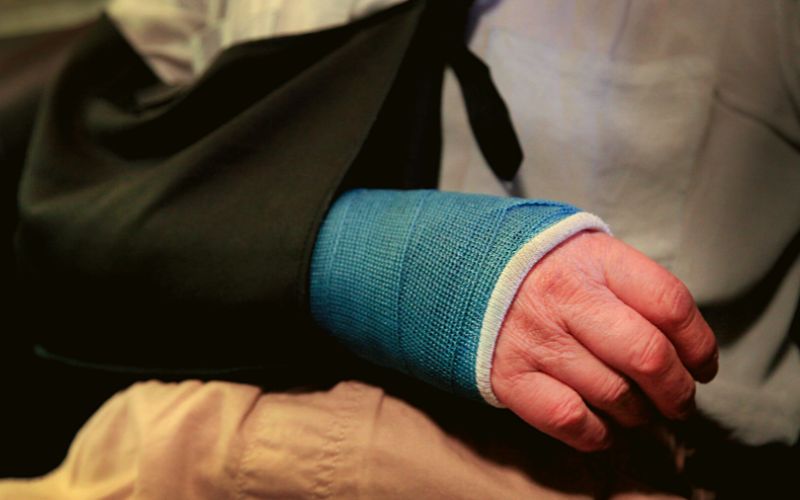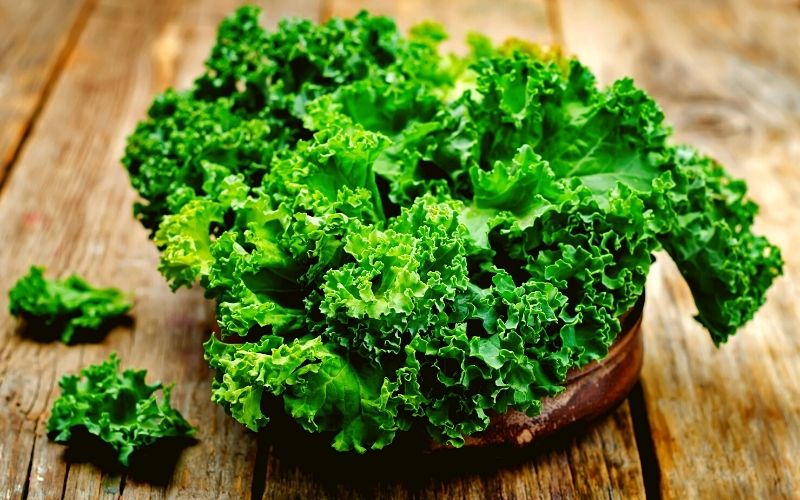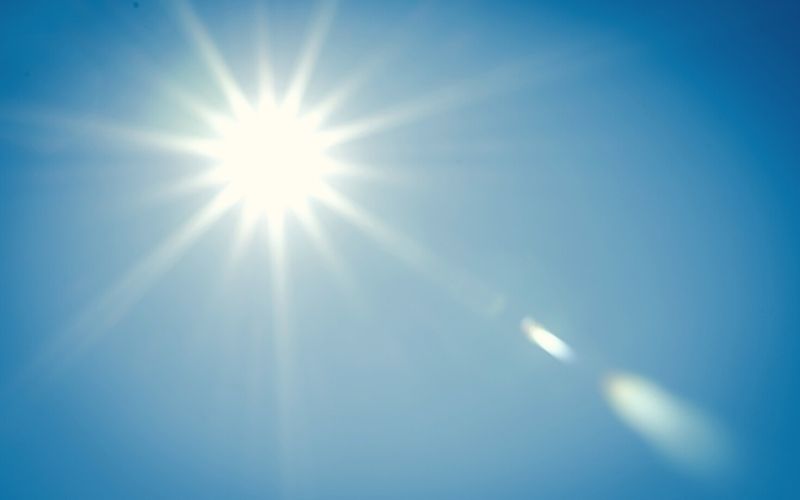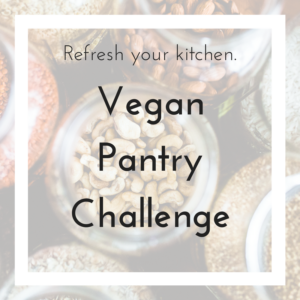Calcium for vegans and plant-based eaters: should we be worried?
Americans and Canadians, and some Europeans, have repeatedly been told that we need to drink milk and consume dairy products for bone health. Going vegan can feel like a rebellion against the established nutritional order! Are we putting our skeleton at risk by shunning milk that comes from non-human mammals? Obviously, no. However, we must acknowledge that the typical diet of 21st century Westerners often lacks in sources of calcium (other than dairy). For that reason, vegans and plant-based eaters should be calcium-aware when making food decisions.
In this post, I will review the importance of calcium for our health, discuss the recommended target for dietary calcium intake, and provide some suggestions to cook and eat in a way that benefits bone health. This post was first published in early 2022. This version is updated to reflect additional evidence about vegan bone health and fracture risk.
NOTICE: I am an educator, meal planner, and sociologist, not a medical professional. I am educated on the topic of nutrition and trained at critically assessing sources of information, including peer-reviewed publications. This article constitutes my opinion on the topic of calcium and bone health. I encourage you to engage with other legitimate sources of information, including the many listed or linked here. If you have health concerns, please consult with a plant-friendly medical professional or registered dietitian.
Why does calcium matter?
Iron is the most abundant mineral on earth, but calcium is the most abundant inside our bodies. It is an essential building block of our bones, the individual cells of which are constantly being replaced. Calcium is also required for proper cardiovascular, muscular, and neurological function. The ideal calcium range in our blood is very narrow, and constantly regulated by biological processes. If too little calcium is coming in, our bodies increase absorption through the gut and decrease losses through urine. If we still don’t have enough to sustain our systems’ health, we end up digging into our calcium reserves: our bones.

Why do we need calcium and how much should we get?
The calcium to build our bones and run our cardiovascular system has to come from somewhere. Every nutrition book insists that dietary calcium intake is important, and surely it is… yet the current scientific literature on the topic is confusing.
Official recommendations: Though it fluctuates between countries, the recommended daily intake of calcium is between 1000 and 1300 mg in North America. In the United Kingdom however the recommended daily intake for most adults is only 700 mg. China has set the recommended daily amount to 800 mg. Bone health is the most commonly cited justification for those targets.
What recent scientific studies say: A useful systematic review and meta-analysis published in the British Medical Journal in 2015 reports that: “Dietary calcium intake is not associated with risk of fracture, and there is no clinical trial evidence that increasing calcium intake from dietary sources prevents fractures. Evidence that calcium supplements prevent fractures is weak and inconsistent.” A 2019 review article in the Medical Journal of Australia also did not support supplementation as a way to prevent bone fractures.
However, those are based on studies of developed countries which have a history of dairy consumption. What about emerging countries without a milk habit?
The results of a 2016 Chinese long-term study of calcium intake may surprise North Americans: “A relatively low fracture risk is observed in men with dietary calcium intakes of 275 to 780 mg/d and in women with intakes of 250 to 650 mg/d, and higher intakes may have no further benefit for fracture prevention.” In fact, higher calcium intake (800 mg/day and more) might be associated with higher risk of fracture. (A more recent study agrees that the seemingly-low calcium intake of Chinese people may very well be sufficient for their needs.)
None of the studies above were concerned about dietary patterns (omnivore vs. veg*), but there is new evidence arising – and it’s not that straightforward.
Vegan bone health and calcium intake
A solid 2020 publication based on the EPIC-Oxford study showed that vegans were at greater risk of certain types of fractures (notably hip fractures) than vegetarians and meat-eaters. The increased risk was specifically for women. The good news however is that the risk was neutralized for those with a daily intake of at least 525 mg of calcium and a healthy mid-range BMI (22.5 and above). In the study, connections were also drawn to the vegan participants’ lower protein intake and lower vitamin B12 and D supplementation, all of which are bone health factors.
In her excellent review article on Plant-based diets and bone health, Dr. Shireen Kassam summarizes two additional studies with concerning findings:
- Results from the Adventist Health Study 2 that highlight a much higher hip fracture rate in female vegans who do not supplement calcium and vitamin D.
- A paper from the UK Women’s Cohort Study indicating that veg* eaters (the study combined vegetarians and vegans) suffer hip fractures more, possibly due to insufficient protein consumption (less than 0.75 g per kg per day), lower BMI, and lower B12 and D vitamin intakes.
Dr. Kassam notes that the bone fracture risk for vegans remains a small concern relative to the notable cardio-vascular health benefits of a predominantly plant-based diet.
How to be a bone-aware vegan
Clearly, calcium matters… to a point. As you can see from the studies cited above, forgoing milk isn’t a one-way ticket to the orthopedic surgeon’s office! However, bone health is jeopardized by some factors, especially for women:
- Calcium intake under 525 mg per day
- Low weight relative to height (BMI under 22.5)
- Lack of consistent intake of vitamins B12 and D, which is only guaranteed by supplementation
- Insufficient protein intake (under 0.75 grams per kilo per day)
In addition, other lifestyle factors such as a sedentary lifestyle and excess caffeine, alcohol, and salt consumption can weaken our bones.
My view is that North American calcium recommendations (the 1000 mg/day target) have been erring on the side of “more is better” due to caution, but also as a result of the influence of overt and covert dairy industry lobbying efforts within national food and agriculture organizations (like the USDA) and dietetics associations.
However, in practice, once one reaches a reasonable threshold, let’s say 600 mg calcium per day, additional dietary calcium is probably not required. I will show you below how to reach that target with your daily meals. But, for better bone health, vegans and those eating a predominantly plant-based diet also need to pay attention to other plant-based nutrition targets, more specifically ensuring sufficient protein intake (thanks to legumes, whole grains, nuts and seeds, and more) and supplementing vitamins B12 and D. Thinner women may also want to be particularly emphasize preventive bone health, notably with resistance exercise.
More generally, we may need to add context to what we typically consider a “healthy BMI” for women.

Sources of calcium for vegans
Cows eat grass, legumes, and grains, and make calcium-rich milk, so we shouldn’t be surprised to find out that those plant foods have plenty of calcium for us.
Here are the top non-dairy calcium-rich foods for you to enjoy every day and integrate into your weekly meal plans:
- Nuts and seeds: two tablespoons of nuts or seeds sprinkled on your overnight oats or blended into your waffles will give your daily calcium a big jumpstart! Chia seeds (126 mg per 2 Tbsp) and almonds (88 mg per quarter cup) lead the pack.
- Dark leafy greens: low-oxalate greens like cruciferous vegetables (broccoli, kale, cabbage…) offer readily-available calcium. High-oxalate greens like spinach and Swiss chard also have calcium, but less of it is absorbed. One cup of chopped green veggies will give you roughly between 50 and 100 mg of calcium.
- Calcium-set tofu: tofu that is made with calcium sulfate not only taste better (personal opinion!) but it also has a lot more calcium. The range for firm tofu varies widely (from about 300 to over 1500 mg per cup), so check your favorite brand’s nutrition facts.
- Beans: Chickpeas, black beans, and Great Northern beans offer respectively 80, 46, and a whooping 120 mg of calcium per cup. If you enjoy three portions of beans per day (as you should), your calcium will get a nice boost! Enjoy edamame beans as an appetizer for an extra 103 mg per cup.
- Some whole grains: quinoa and oatmeal have a fair bit of calcium (31 and 21 mg per cup respectively). Rice (even brown), however, has very little.
- Berries: Some berries pack a surprisingly big calcium punch, like blackberries (42 mg per cup) and raspberries (31 mg per cup). It’s not the case for all berries, but those tiny fruits have a lot of other nutrients in them (and they taste amazing, especially in season).
- Supplemented foods: Many commercial vegan staples like plant milks and yogurts are supplemented with calcium. I personally do not consume much of those, but in a pinch they’re not a bad nutritional resource to add to your arsenal. Those might be especially valuable for highly selective people who haven’t yet developed a taste for dark leafy greens (a.k.a. picky eaters).
In short, the key to boost your calcium as a vegan is to eat a wide variety of foods, with a focus on vegetables, legumes, and whole grains, with a judicious sprinkle of nuts and seeds.
Benefits of plant sources of calcium over dairy milk
As Dr. Michael Greger wrote in his book How Not to Die (2015), our calcium-rich foods of choice don’t come with just calcium. The “package” they come with matters:
Dairy is the number-one source of calcium in the United States, but it’s also the number-one source of saturated fat. What kind of “baggage” do you get along with the calcium in green, leafy vegetables? Fiber, folate, iron, and antioxidants – some of the very nutrients lacking in milk. By getting most of your nutrition from whole plant foods, you get a bonus instead of baggage.” (p. 260)
Avoiding calcium thieves
Alcohol, caffeine, and smoking are known to reduce the efficiency of calcium absorption. Apparently, so does excess sodium (above 1,500 mg per day).

Increasing calcium absorption with vitamin D?
Healthy bodies are very skilled at regulating the amount of calcium in our blood. Yet many sources, including the most authoritative ones like Brenda Davis and Vesanto Melina’s Becoming Vegan book, recommend making sure that we get ample vitamin D, either by sufficient exposure to sunlight or by supplementation.
There is some doubt about the actual benefits of vitamin D supplementation based on studies of calcium absorption and bone health (see the Medical Journal of Australia review piece). Still, there are other reasons to make sure we get enough (but not too much!) vitamin D (including as needed through supplementation), so please don’t stop.

Beyond calcium: exercise for bone health
Health is always more complex than the reductionist, single-nutrient lens makes it seem. Many other vitamins and minerals are required for bone health, but thankfully they are also abundant when eating a diet of whole plant foods.
The one ingredient that isn’t on your plate, but that you shouldn’t neglect, is resistance training or weight-bearing exercise. In addition to promoting bone strength, muscle-building exercise also makes the body stronger in general, decreasing the odds of falls.
I love how Dr. Michael Klapper talks about this topic, and specifically addresses the study mentioned above that indicated vegans have more bone fractures. For those who prefer to simply walk (as opposed to lifting weights or doing higher-impact exercise like running), he recommends adding a weighted vest. Watch him here (first 4 minutes or so):
Promoting bone health on a plant-based vegan diet
There are three main things to remember when it comes to promoting bone health and preventing fractures on a plant-based vegan diet, beyond just worrying about calcium for vegans:
- Eating a diverse diet of whole plant foods, with a focus on dark leafy greens and legumes, plus a sprinkle of nuts and seeds. That should easily take care of getting you over 600 mg of dietary calcium per day, and more like 700 mg, which, based on the research described above, is sufficient for bone health.
- Adequately supplementing vitamin B12 and vitamin D.
- Adding daily resistance exercise to your lifestyle, including impact exercise (jogging rather than just walking) or walking with a weighted vest or lifting weights. I suggest you go get your groceries on foot!
What is your favorite way to add calcium to your weekly meal plan?




Really useful, well-researched article, Brigette. Thanks for bringing this information to us in a solid, easy to read manner. This definitely alleviates my anxiety about “getting enough” and helps me to view my plate in a more balanced way. I also loved the reminder that exercise is crucial to maintaining bone health. Thanks for so generously sharing your intellectual work with us (and for free).
Thank you Nicki for the kind comments I really appreciate you dropping by and sharing your thoughts. Bon appétit!